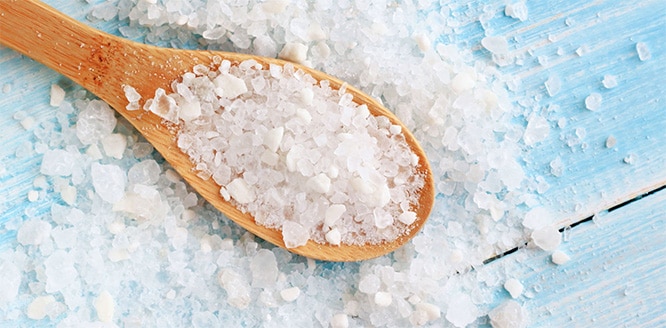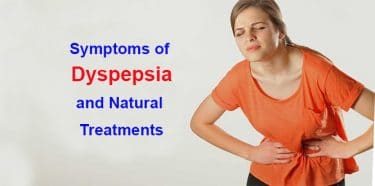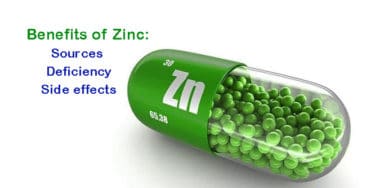Iodine is a chemical element which our body cannot produce but procure from foods, and it is necessary for thyroid hormone production. When iodine need is not adequately met, the thyroid hormone levels decrease and a serious of health problems arise. Diseases caused by iodine deficiency are one of the most common health problems in the world. Inadequate iodine intake especially during pregnancy and infancy may cause serious problems like brain damage and mental deficiency. In adults, deficiency results in goiter which means thyroid gland enlargement. Consuming iodized salt is helpful preventing these diseases. Moreover, consuming sea products rich in iodine at sufficient amounts is also recommended. In areas with deficiency, iodine tablet supplements are recommended to be used especially for pregnant and breastfeeding women.
Table of Contents
What is iodine?
Iodine is an important mineral which is commonly found in sea products. The body needs it, however, it cannot produce it itself. The necessary amount can be taken from foods. Unless added extra (e.g., iodized salt), foods have very low amount of it. Majority of iodine in world is found in sea life and oceans.
What does iodine do?
It is the essential substance to maintain a proper thyroid gland function. Thyroid gland uses it to synthesize its hormones. Thyroid hormones help growth and cellular damage repair, and control metabolism and other important bodily functions. The reason of decreased thyroid functions is low iodine levels. External iodine should be taken to prevent diseases caused by this.
Also, it has a killing effect on other microorganisms like fungi and bacteria. It can be applied as a ointment on the body for the treatment of some fungal skin diseases and diabetic ulcers. It is also used for water purification.
Daily iodine intake
- 0- to 5-year: 90 microgram/day
- 6- to 12-year: 120 microgram/day
- In adolescents and adults:150 microgram/day
- In pregnant women and during pregnancy: 200-300 microgram/day
Causes of iodine deficiency
Iodine deficiency affects millions of people worldwide. It is more common in countries where people do not have enough access to healthy food.
The most important causes of iodine deficiency
- Living in regions with iodine-poor soil
- Having an iodine-poor diet
- Body’s inadequacy to process iodine
Also, vegetables which have antithyroid compounds such as cabbage, cauliflower, Brussels sprout, turnip, radish may have a role in deficiency by preventing iodine transportation in the thyroid gland. These foods should be consumed in a balanced matter.
Individuals at high risk for iodine deficiency:
- Pregnant women
- Individuals living in countries with iodine-poor soil
- Individuals who do not use iodized salt
- Vegetarians and vegans
Symptoms of iodine deficiency
- Lump in the neck
- Fatigue
- Increased sensitivity to cold
- Constipation
- Dry skin
- Weight gain
- Puffy face
- Muscle weakness
- High blood cholesterol levels
- Pain or stiffness in muscles and joints
- Decreased heart rate, and as a result, dizziness and fainting
- Hair loss
- Depression
- Weakened memory
- Menstruation period being more severe than usual
One of the most common symptoms of iodine deficiency is lump in the front of the neck or goiter. Thyroid gland become prominent when it has difficulty to produce thyroid hormones due to its deficiency.
Moreover, since it contributes to regeneration of hair and skin cells, its deficiency may cause hair loss and dry skin. Since thyroid hormones affect the regulation of menstrual cycle in women, this period may be severe or regular in women with deficiency.
Diseases caused by iodine deficiency
Goiter and hypothyroidism are the most common disorders associated with its deficiency. Furthermore, individuals with it are at risk for following conditions:
- Thyroid cancer
- Thyroid-related autoimmune disorders
- Female infertility
- Prostate, breast, endometrial, ovarian and Larynx cancer
- Heart problems such as enlarged heart or heart failure
- Peripheral neuropathy: It refers to a type of nerve disease. Main symptoms include tingling and numbness, pinprick sensation, extreme sensitivity, color changes in skin, nails and hair, sores and ulcers on feet, sweating disorders, heart rhythm disorders, nocturnal diarrhea and urinary incontinence.
- Various mental illnesses and disorders
Treatment of iodine deficiency
As with many illnesses, it is important to take protective measures against the problem rather than treating it. In the last 80 years, studies have been performed worldwide to resolve this problem. It is one of the most important goals of World Health Organization.
Iodized salt became the backbone of the prevention of this problem in many countries. In regions where wide iodized salt use is not possible, practices like iodized oil injection or iodized bread production were exercised over time. Also, water resources improvement was effective in some regions.
If iodine intake via diet is inadequate, supplement may be necessary. Many multivitamin capsules and tablets contain 100-150 mcg of it.
Medications for iodine deficiency
Supplements containing potassium iodide and potassium iodate are the easiest to absorb by our body. You should limit your supplement level to 150 mcg/day. Excessive iodine load may cause thyroid problems. Many individuals with its deficiency may correct their health problems by changing their diets or adding supplements.
Individuals with myxedema (a severe form of hypothyroidism) might need hospitalization. After the individual is stabilized, the physician will monitor the thyroid functions and recommended a diet providing sufficient amount of iodine to regulate the hormone levels.
Iodine deficiency and pregnancy
In regions with iodine deficiency or where iodized salt is not present, iodine supplements are recommended for women of childbearing age, pregnant women and breastfeeding women by experts. All pregnant women should consume approximately 250 mcg iodine a day. To reach a total daily level of 250 mcg, strategies may differ between countries.
In some countries, iodized oil supplements which is administered once a year might be convenient, and potassium iodide supplement in others.
As even a slight deficiency can affect the delivery and developing fetus during pregnancy, women planning to get pregnant, pregnant women and breastfeeding women should support their diets with a daily oral supplement which contains 150 mcg of iodine in potassium iodide form.
This is initiated at least 3 months before the pregnancy. In pregnant women who receive treatment for hyperthyroidism or use LT4 hormone, iodine supplement is not necessary.
What do iodine deficiency cause in pregnant women?
Low amounts of thyroid hormone in pregnant women may increase the risk of birth defects. The possible problems of it include:
- Abortions
- Stillbirth
- Premature birth
- Congenital anomalies in newborns
- Cretinism disease (A disease characterized with disruption of mental and physical development due to inadequate thyroid hormone secretion in severe case)
Iodine deficiency in infants and children
In developing infants or small children, the deficiency has serious effects such as growth and mental retardation. It is an important problem in developing countries and number one reason of preventable mental deficiencies in children all over the world. When it is mild, it only causes goiter, however, it may still delay brain development.
Symptoms of iodine deficiency in infants
- Choking
- Enlarged tongue
- Puffy face
- Muscle weakness
- Excessive sleepiness
- Newborn goiter
- Newborn hypothyroidism
- Neurological disorders
- Increased inclination of thyroid gland to nuclear radiation
Symptoms of iodine deficiency in children and adolescents
- Growth retardation
- Delayed tooth development
- Delayed puberty
- Poor mental development
- Low IQ
- Learning disability
Iodine deficiency and goiter
The lump in front side of neck is one of the most common symptoms of iodine deficiency. This is called goiter and it occurs when the thyroid gland is enlarged too much. Thyroid gland is usually a small, butterfly-shaped gland in front side of your neck area. It produces thyroid hormones after it receives signal from thyroid stimulating hormone (TSH).
When TSH blood levels increase, thyroid gland uses iodine to produce thyroid hormones. When its level in your body is low, it cannot make enough production. Thyroid gland starts to work more to compensate. This cause cellular hypertrophy and growth, and as a result, goiter. Iodine deficiency is the most common cause of thyroid enlargement and goiter in the world. Nodules may develop inside thyroid gland.
Patients with large goiter may experience choking symptoms, and swallowing and breathing difficulty especially when lying down. Fortunately, many cases can be treated by increasing the iodine intake. However, if goiter is left untreated for many years, it may cause permanent thyroid damage.
Iodine deficiency nutrition facts
Though, the foods that are most rich in iodine can be listed as following:
- Cheese: Cottage cheese is one of the best sources. While a piece of cottage cheese provides 65 mcg of iodine, a piece of kashar cheese provides approximately 12 mcg.
- Cow’s milk: One glass of milk can provide 59-112% of the daily need.
- Eggs: Majority of the iodine in the eggs is found in yolk. A large egg provides 16% of the daily recommended amount on average.
- Tuna fish: Three pieces of tuna fish provide approximately 11% of the daily recommended amount.
- Codfish: It is a fish with low in fat and calorie value, however, highly rich in many minerals and nutrients including it. For example, 85 gram of codfish contains approximately 63-99 mcg of iodine corresponding to 42-66% of the daily recommended amount.
- Shrimp: Three pieces of shrimp provide approximately 23% of the daily value.
- Iodized salt: Using 2 gr of iodized salt a day will provide your daily need. The salt should be kept in non-humid cool settings and in dark-colored glass containers resistant to light, sun and air, and add the salt after the meal is cooked, otherwise, its iodine might be lost.
- Yoghurt: A cup of plain yoghurt provides approximately half of the daily recommended amount.
- Marine algae (sea beans): Marine algae are one of the best natural sources. However, its iodine content may greatly change based on its type, region and preparation
- Dry prune: Dry prune is a good source for vegetarians or vegans. Five pieces of dry prune provide 13 mcg of iodine corresponding to approximately 9% of the daily daily needed amount.
Iodine Poisoning
Taking excessive amounts of iodine may cause problems. This is especially relevant for individuals who already have thyroid disorders such as nodules, hyperthyroidism and autoimmune thyroid disease. Intake of iodine at large amounts via medications (e.g., amiodarone), radiological procedures (iodized intravenous agent) and excessive sea product consumption may impair or worsen the thyroid functions. For more: >>> Iodine




